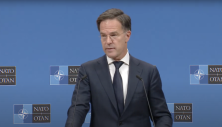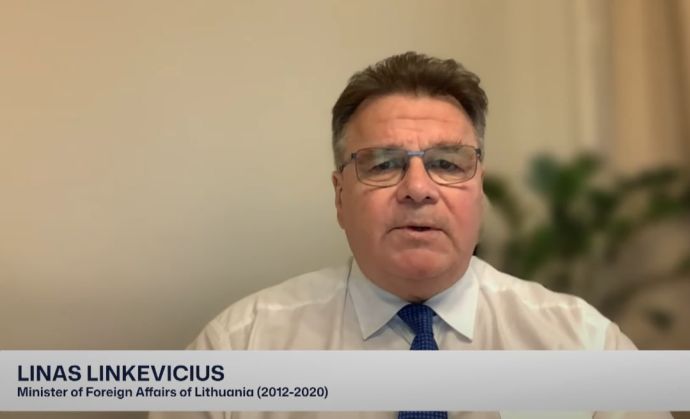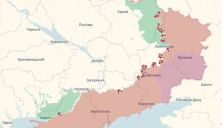If Russia attacks the Baltics, will NATO react accordingly? Ramstein Contact Group – any cautious expectations? Peacekeeping missions in Ukraine – what for. Robert Fico and his threats to cut power. Energy crisis in the so-called “Transnistria” – can Russia lose control over the territory if Moldova comes for help?
Linas Linkevicius, Lithuanian ex Ministry of Foreign Affairs Head answers questions in this interview.
— My first question is not actually mine. I’ve met someone from Lithuania recently, and he said there are too many back doors. He asked: “Tomorrow, God forbid, if Russia invades the Baltic states—my native Latvia, your native Lithuania, and Estonia—will NATO respond in full might, or will they leave the Baltic states to their own fate? What do you think?”
— No, these fantasies are not for discussion, you know, making assumptions. First of all, I don’t think they will invade. Secondly, NATO will definitely defend itself because NATO has been criticized a lot about not intervening or engaging when something wrong happens in Europe—or in the Euro-Atlantic area, even, let’s say. To protect itself, that will be a decisive moment for NATO; otherwise, NATO is not needed.
It’s also understood by everyone—there’s too much at stake, so to say. My feeling is that, first of all, it will not happen because there are other tasks for the aggressor so far that are not fulfilled. There’s much to do in their so-called backyard to start something bigger. Although we know resources are also not unlimited, madness has no limits, as we all know. So, it’s very difficult to predict exactly, but since you’re asking about assumptions, I’m trying to share some of them.
— But let’s make a small prediction of something that’s more or less predictable. Tomorrow is the next meeting of the Ramstein Contact Group. I wonder—should there be any cautious expectations that can be called favorable for Ukraine, or is this purely an official event? Say hello, congratulate each other, and say goodbye?
— No, I think, first of all, it’s not to say goodbye. I like the statements of Austin, even though he’s leaving and the administration is about to end its activity. He said it should continue.
We’re talking about the 25th meeting of Ramstein, right? Too many anniversaries. It’s also a reminder that there’s not just one coalition of willing countries helping Ukraine. In fact, there are eight coalitions on specific issues and very important matters.
The statement from Austin referred to the meeting as a milestone, so it should really be backed by substance. A slogan is not sufficient—there should be more concrete information. The ambition is to make this support process sustainable at least until 2027. And as a reminder, there are more countries in the world, not just the United States. While the U.S. is decisive and crucial, it’s not the only one.
The ambition is to keep the process alive. I welcome that mood and believe it’s really doable. Is it sufficient? Is there enough leadership to run the show? That’s another question. Sometimes it’s not, but maybe these challenges will make the group stronger, and they’ll understand that the process should continue.
It’s not just a meeting to say goodbye—it’s to remind everyone that the group is still alive, there are eight coalitions, and they aim to continue supporting Ukraine in a sustainable way.
Read also: Are Negotiations Possible as They Are Now? Interview with Andreas Umland










